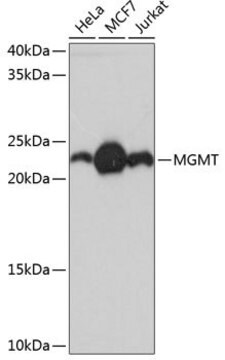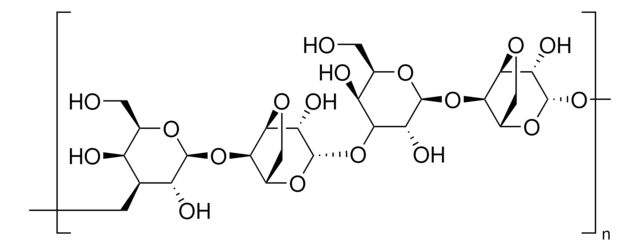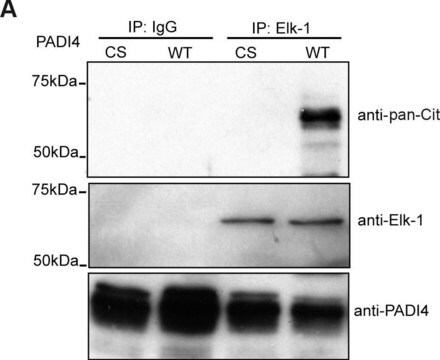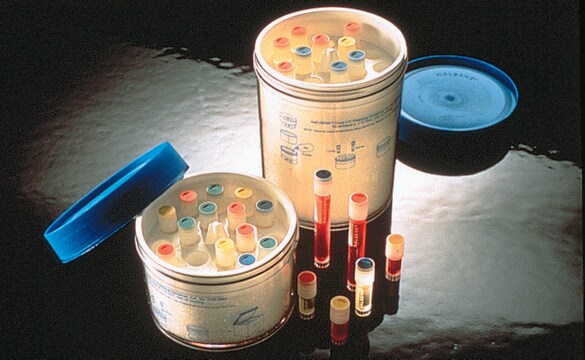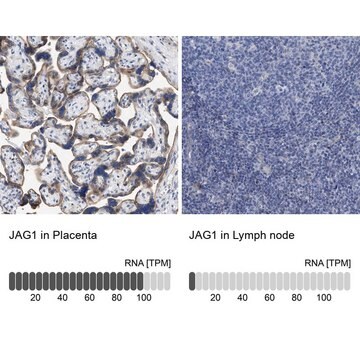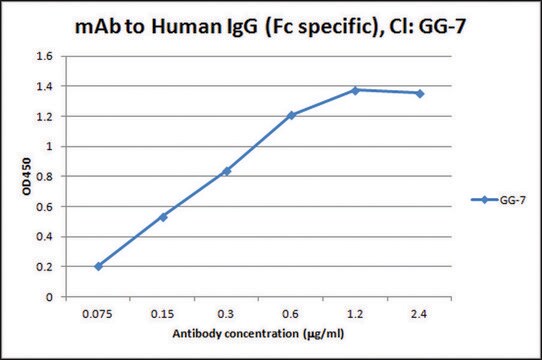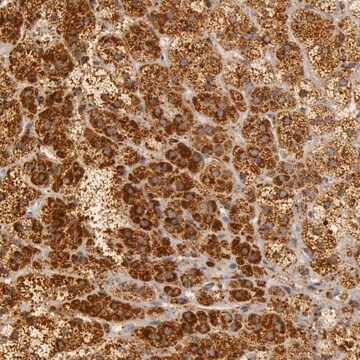C0730
Anti-CD137 antibody produced in goat
affinity isolated antibody, lyophilized powder
Synonym(e):
Anti-4-1BB
About This Item
Empfohlene Produkte
Biologische Quelle
goat
Konjugat
unconjugated
Antikörperform
affinity isolated antibody
Antikörper-Produkttyp
primary antibodies
Klon
polyclonal
Form
lyophilized powder
Speziesreaktivität
human
Methode(n)
capture ELISA: 0.2-0.8 μg/mL
flow cytometry: 2.5 μg using 106 human T cells treated with PHA
immunocytochemistry: 5-15 μg/mL
western blot: 0.1 μg/mL
Verunreinigungen
<0.10 EU/μg endotoxin
UniProt-Hinterlegungsnummer
Lagertemp.
−20°C
Posttranslationale Modifikation Target
unmodified
Angaben zum Gen
human ... TNFRSF9(3604)
Allgemeine Beschreibung
Immunogen
Anwendung
- Agonist Activity: Measured by its ability to costimulate IFNg secretion by human T cells in the presence of anti-CD3. The ED50 for this effect is typically 5-20μg/mL.
- ELISA capture: It can be used as a capturing reagent in a human 4-1BB sandwich immunoassay in combination with biotinylated human 4-1BB detection antibody and recombinant human 4-1BB as the standard. The suggested coating concentration range is 0.2-0.8μg/ml. The recommended concentration of the detection antibody is 0.1-0.4μg/mL.
- Flow cytometry: 2.5μg/106 cells using Human T cells treated with PHA (phytohemagglutinin).
- Immunoblotting: A working concentration of 0.1μg/ml was determined using recombinant human CD137.
- Immunocytochemistry: 5-15μg/mL using immersion fixed human peripheral blood mononuclear cells.
Biochem./physiol. Wirkung
Physikalische Form
Rekonstituierung
Haftungsausschluss
Sie haben nicht das passende Produkt gefunden?
Probieren Sie unser Produkt-Auswahlhilfe. aus.
Lagerklassenschlüssel
10 - Combustible liquids
WGK
WGK 1
Flammpunkt (°F)
Not applicable
Flammpunkt (°C)
Not applicable
Hier finden Sie alle aktuellen Versionen:
Besitzen Sie dieses Produkt bereits?
In der Dokumentenbibliothek finden Sie die Dokumentation zu den Produkten, die Sie kürzlich erworben haben.
Unser Team von Wissenschaftlern verfügt über Erfahrung in allen Forschungsbereichen einschließlich Life Science, Materialwissenschaften, chemischer Synthese, Chromatographie, Analytik und vielen mehr..
Setzen Sie sich mit dem technischen Dienst in Verbindung.